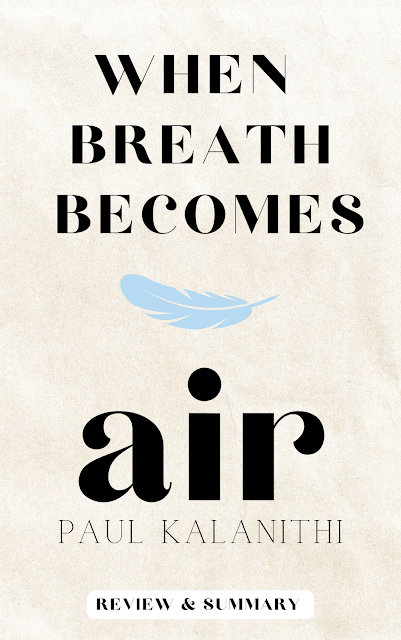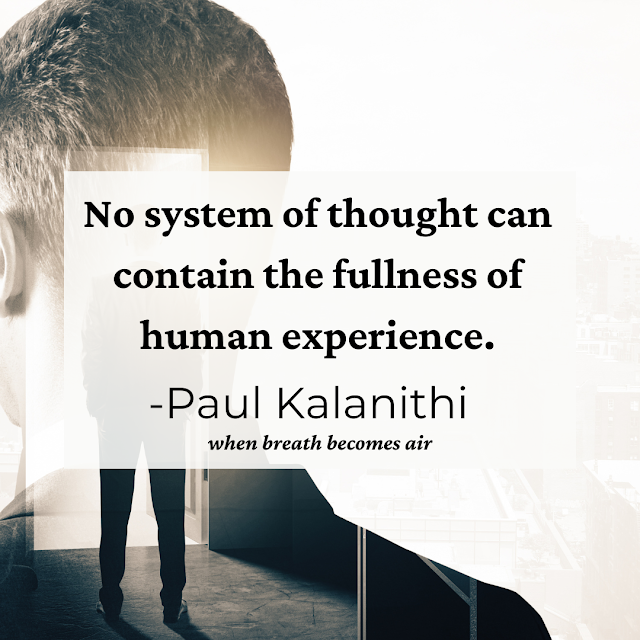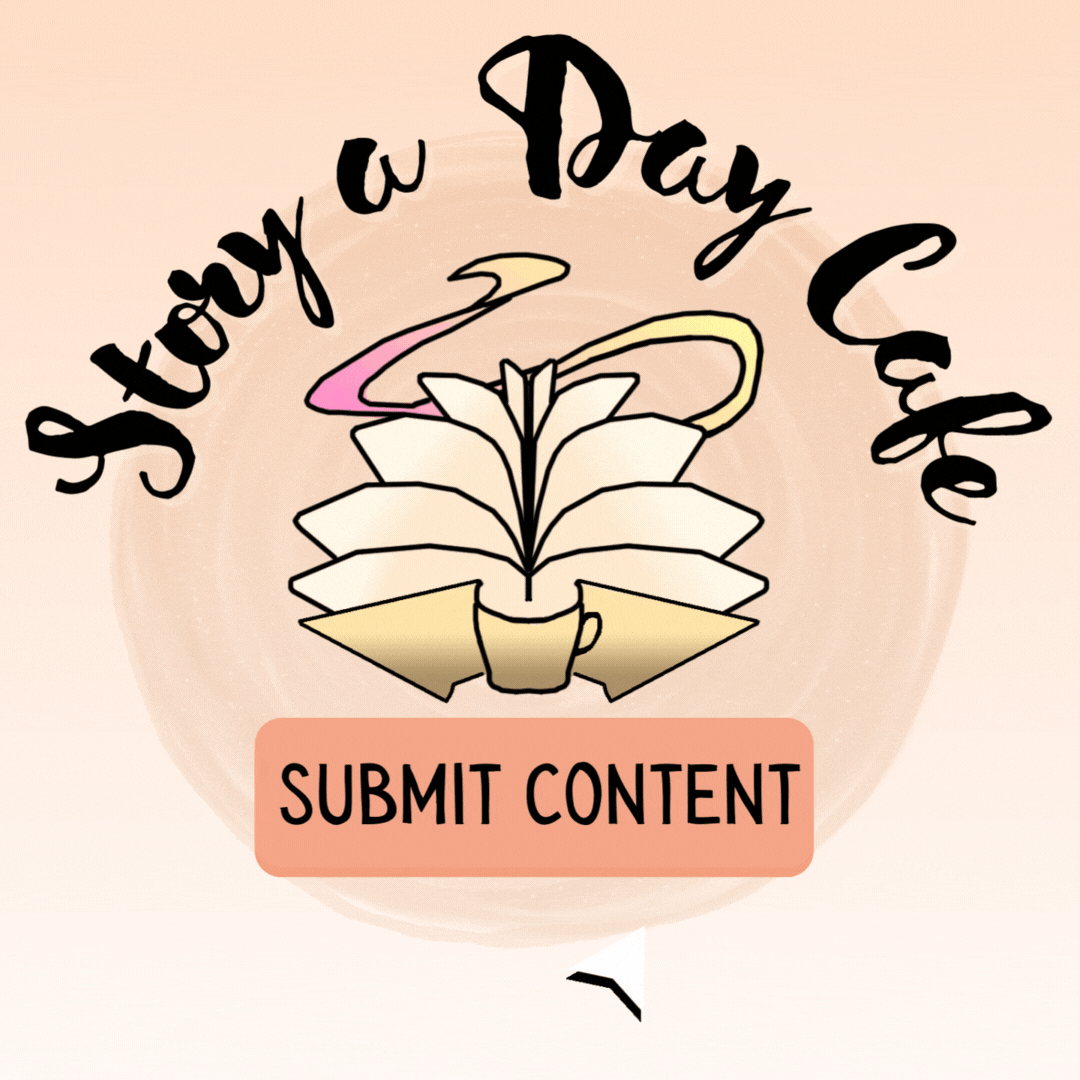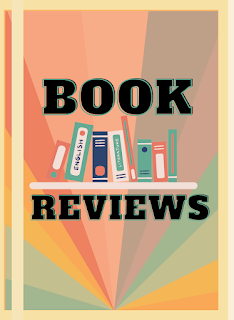Book Review: When Breath Becomes Air by Paul Kalanithi
Oh man.
This one was a doozy.
But I suppose that’s to be expected from a biographical account of a dying man.
I found this book while browsing the local library. I try to select at least one fiction novel and one nonfiction novel to read each time I go and this was my nonfiction pick. The poetic title and the minimalistic cover design are what stood out to me the most. Then, when I picked it up and read the first couple sentences of the cover flap, I was hooked:
I’m a sucker for exploring the philosophies of life. Like Paul, I consider myself a seeker of meaning, constantly asking myself questions like those proposed in the synopsis of the book:
What makes life worth living in the face of death? What do you do when the future, no longer a ladder toward your goals in life, flattens out into a perpetual present? What does it mean to have a child, to nurture a new life as another fades away?
To be able to ask these questions, and to put ourselves on the path of seeking the answers, I believe is one of the hallmarks of the human experience. Though, as Paul reminds us in the book, “No system of thought can contain the fullness of human experience.”
The story starts out with Paul’s first diagnosis with cancer and then quickly turns into a biographical account of his life’s work: attempting to discover what it means to live and die as a human being through the lens of a neurosurgeon and a lover of literature.
We see him growing up in a rural part of Arizona, his mother impressing upon him the importance of education and literature. Like most young men at a certain point in their lives, he aspired to be someone entirely different from his father, a doctor who was inspiring and brilliant but also frequently absent and engrossed in his work.
And also like most young men at a certain other point in their lives, he eventually became a very similar person to his father in the end by becoming a neurosurgeon and combining his interest in literature's quest for meaning with the scientific study of how the brain makes us capable of pursuing such a quest.
He believed that science and literature were not complete opposites but instead two sides of the same coin: a way to make and pursue meaning in life. By pursuing a career path as a neurosurgeon, it’s clear that he hoped to find meaning in the deeply intense work of holding someone’s meaning-maker in his hands, literally taking it apart and piecing it back together over and over and over again.
Then, as life tends to do, in an ironic twist of fate, his quest for meaning was put to the test when he became the patient on the verge of death that he encountered constantly in his every day life.
In the aftermath of his diagnosis, we see Paul struggling to come to terms with what it means to truly live as he grapples with his terminal illness, overcomes it, and then relapses again.
“The way forward would seem obvious if only I knew how many months or years I had left. Tell me three months, I'd spend time with my family. Tell me one year, I'd write a book. Give me ten years, I'd get back to treating diseases. The truth that you only live one day at a time didn't help: What was I supposed to do with that single day?”

Paul reflected on life's important questions throughout the book as he struggled to live.
He threads his reflections on important questions with his first person account of what it felt like to live with his illness, what it felt like to be a patient after years of being a doctor, and also what it was like to be staring death right in the face and deciding to live a life worth meaning in spite of it.
Above all the bits of wisdom threaded throughout the book (and there are A LOT), the notion that the quest for meaning is a never-ending process—one we will all ultimately struggle to define every day of our lives until we die—is the most prevalent. A reminder that life is about the journey, not the destination.
What gutted me the most about this novel was how much of it was clearly written with the intention for his daughter to be able to know him, even after he is long gone. He died just 8 short months after her birth, leaving her with this book and the last line he wrote in it–a clear dedication speaking directly to his only child:
“When you come to one of the many moments in life where you must give an account of yourself, provide a ledger of what you have been, done, and meant to the world, do not, I pray, discount that you filled a dying man’s days with a sated joy, a joy unknown to me in all my prior years, a joy that does not hunger for more and more but rests, satisfied. In this time, right now, that is an enormous thing.”
I had to put the book down after reading that last line so I could bawl my eyes out. It hit me so hard my grief wound was split wide open and it took me a moment to recover and actually finish the rest of the book.
And, man, do I love a book that makes me cry. Isn’t that the point of art, after all? To make us feel something?
The book officially ends with a note from his wife, Lucy, who shares what the last year of Paul’s life was like in the time between when he wrote that last line and when the book was published. She talked about what his intentions were for writing, how he wrote, and also how he lived.
Overall, When Breath Becomes Air is truly a beautiful reminder that maybe the most meaningful thing we can do in life is seek to make life meaningful.
Maybe, just maybe, that is more than enough.
What do you think?
I’d love to hear your thoughts in the comments below!








.png)













0 comments